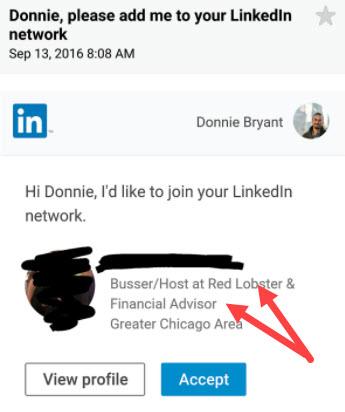One of the major reasons we don’t get the results we want in life is because we’re thinking too big.
We want more than we can have. We want to do more than we can accomplish. If we’d start thinking smaller, we’d be much happier.
This may not seem like a marketing concept, but let’s explore this concept for a few minutes to see what kind of business wisdom we can pull out of it.
Trying to Make Everyone Your Customer
There aren’t a whole lot of product categories in which everyone can be your customer. Most companies are not General Mills or Fruit of the Loom. Services like people like plumbers or tax preparers have a wider potential customer base. But even in those cases, discriminating against some customer types is almost always beneficial for your business.
In order to market your business to everyone, your message has to be somewhat generic, which invariably lowers its persuasiveness. On the other hand, picking a segment of the population and designing campaigns specifically for them allows you to be much more relevant and compelling, which drives better results.
On top of that, even if you could sell to everyone, some people simply aren’t the kind of customers you want to do business with. Others are the kind of people who are a joy to work with and serve.
Think about this: Red Bull could probably sell energy drinks to most American adults and teenagers (since most of us feel short on energy at least occasionally). But do they make generic ads? To they try to appeal to every possible personality type? Not at all. They sponsor extreme sports and appeal to the risk taker.
That doesn’t keep Suzy Homemaker from sneaking one while the kids are at school every once in a while.
One more thing. Generic products very rarely generate strong loyalty or enthusiasm around a brand. Contrast that with how people feel about Harley-Davidson or Apple.
So, even if you could potentially market your product to everyone, it’s pretty much guaranteed that you’ll get better results if you pick a core audience and really go after them. Other people will probably still come along. Nike promotes their product to athletes and those who’d like to be athletes. But people from every walk of life (forgive the pun) buy their shoes and other products.
Trying to Cover Too Many Bases
In baseball, the catcher covers home plate and the area around it. He rarely plays in other parts of the field. Imagine the chaos if he tried!
Let’s take one of my famous extreme illustrations. Imagine meeting two lawyers for the first time. They hand you their business cards; one says “Attorney-at-Law” and the other says “Attorney/Pastry Chef/Accupuncturist.” Which one are you going to take more seriously?
The natural reaction is to believe that the 100% lawyer is more qualified than one who is 33% lawyer, 33% chef and 33% accupuncturist. Who knows which one is really better. But the guy who can’t seem to decide what he wants to be when he grows up would be a less attractive choice for most of us.
It’s better for you to be world-class at just one thing than to have decent skills in five different areas.
Here’s a humorous-but-not-hypothetical example. It’s a real connection request I received on LinkedIn:
It’s going to be difficult for me to trust a financial advisor who’s also a busboy at Red Lobster.
Maybe it’d be different if he were the manager…
Know your strengths and maximize them. Market them. Know what customers appreciate and benefit from most. Concentrate on those few things.
We get it. There are so many wonderful things about your business and your product. But if you try to talk about all of them, you can over-stuff your message, making it difficult for your audience to swallow.
Stop thinking so big! Pick one thing and become the best practitioner and best marketer of it.
Other “Big Thinking” Problems
** You can get into trouble by trying to appeal to too many emotions in your sales message. It’s usually better to focus your message. I know, you don’t want to leave out anything that night entice someone to buy from you. But you may very well be sabotaging yourself. Rather than touching on every possible way the prospect could feel about the benefits of your service, consider drilling deeply into one feeling (or at least just one at a time).
** Trying to make “big money” on your first interaction with a customer is often the wrong attitude. This is one of the reasons people in sales and marketing have bad reputations.
If we’re so concerned about making a sale today and extracting as much cash from their pockets as possible without regard to his long-term well-being, we may be doing more harm than good. In most cases, we’re hurting our own long-term well-being in so doing.
** Trying to get large quantities of customers may or may not be the right way to structure your business, even if they’re all ideal customers. It may be better to think bigger about the value you can provide a smaller number of clients. Instead of constantly chasing more clients, it’s more profitable and usually easier to get additional sales from your existing customers.
When Thinking Big Is Good
1) Thinking about how to provide the biggest possible value to your customers. As much as possible, you should try to change their lives for the better.
2) Turn your interactions with clients into big, memorable experiences.
3) What can you do for your customers that no one else can or will do? What’s the most powerful transformation you can affect in their lives? Make sure to communicate those big promises.

